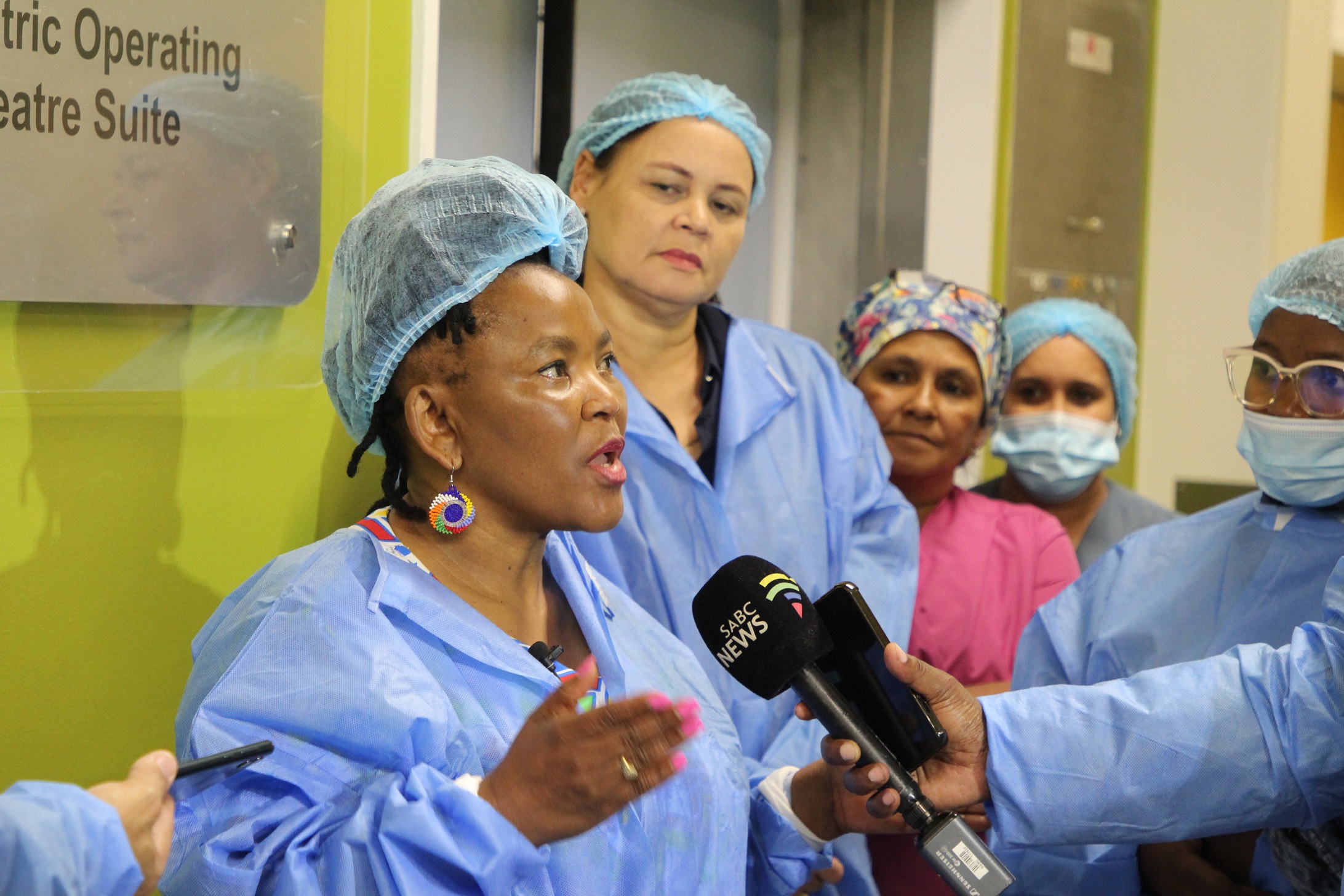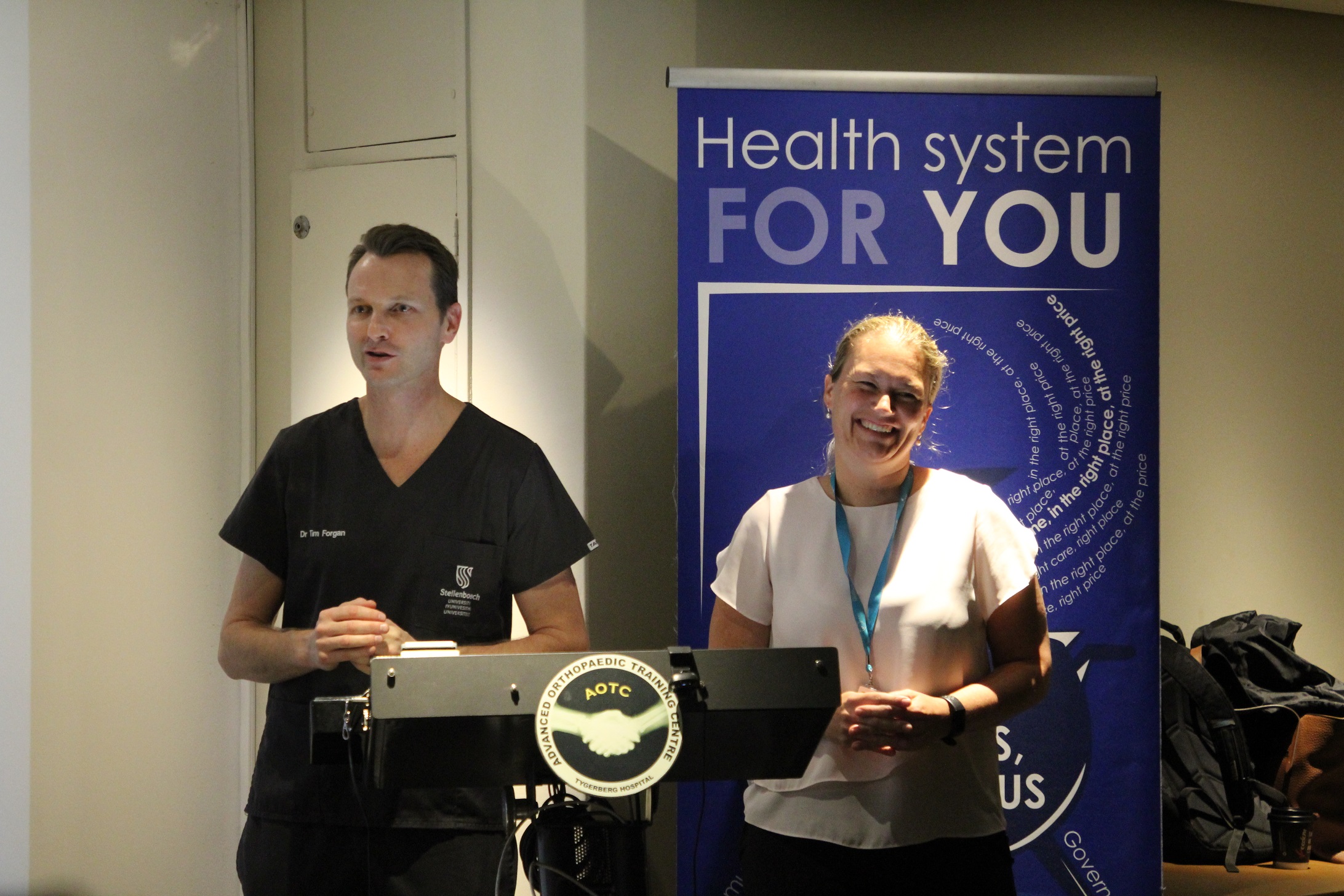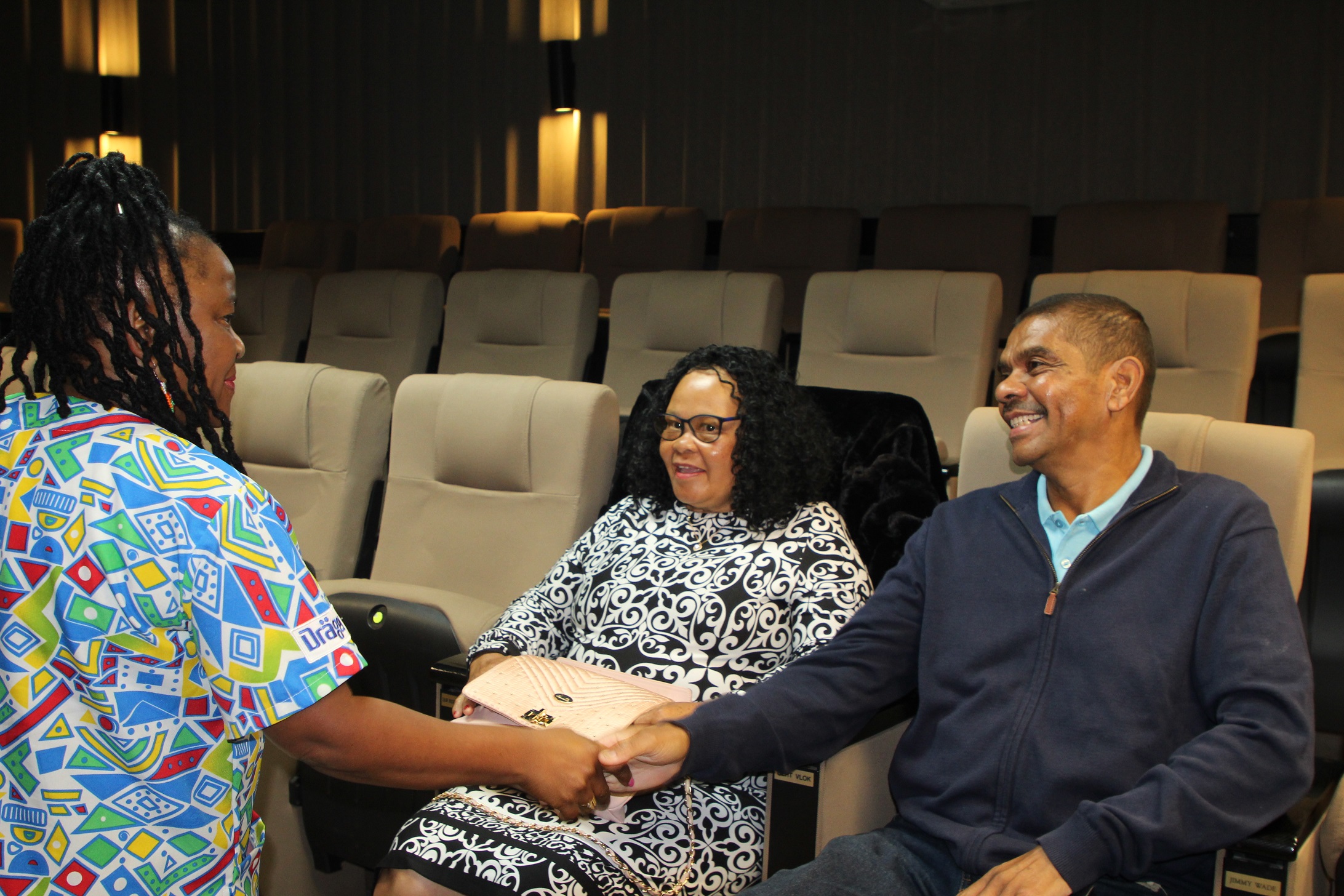
News
Tygerberg and Groote Schuur Hospital surgical robots perform over 600 surgeries
Tygerberg and Groote Schuur Hospital surgical robots perform more than 600 surgeries since 2022
Today, 3 May 2024, Western Cape Minister of Health and Wellness, Professor Nomafrench Mbombo, joined clinicians and staff from Tygerberg and Groote Schuur Hospitals to receive an update on the progress of the da Vinci robotic surgery programmes and the impact it has had on our services.
Since 2022, the department has performed 603 robotic surgeries which excludes the two being performed at the time of this event. These two machines were purchased at a combined cost of R80 million in 2021.
After the initial rollout of colorectal surgery in February and March 2022, the machines were then expanded to urology and gynaecology. The theatre staff have been trained or upskilled by da Vinci accredited personnel. This has led to even greater skill transfers for staff members.
Currently, the robotic surgery systems are being used in the following procedures:
- For general surgery, they are used for both abdominal wall and colorectal surgeries.
- In urology, they are used for prostatectomies, cystectomies and nephrectomies.
- In gynaecology, they are used to treat endometriosis as well as in applications for pelvic floor urogynaecology.
Since the da Vinci machines are used for advanced diseases that are difficult to surgically remove without a large incision and extended theatre hours, we can see the immense impact it has for patients and the health system. For example, a traditional open cystectomy patient would require three days of ICU stay as well as two weeks of hospital stay to recuperate. During this time, on average, 42% of patients require blood transfusions and almost 20% need total parenteral nutrition (TPNs) – when a patient is fed intravenously.
However, a patient undergoing robotic surgery for a cystectomy requires no ICU stay and goes straight to a general ward or post-anesthesia care unit (PACU) for no more than 6 days on average. In addition, no blood transfusions or TPNs are needed, which saves the health system even more resources.
Attending the event was Mrs Lorraine Gys (65), from Melton Rose, who was the first recipient of robotic surgery at a public hospital (Tygerberg Hospital) in South Africa. She said, “My recovery was very quick in comparison with the other patients in the ward. I could wash myself after the operation whereas the other patients had to be assisted. I was up and about in no time and the staff were amazed with my recovery. I was discharged on day four. What’s even more amazing was when I got home, I could even continue doing my own chores. I can honestly say that the treatment and care at Tygerberg Hospital was top quality, I am very grateful to every staff member involved with the progress of my treatment. The staff were very supportive and accommodating during my stay in the hospital.”
Also present was Mr Leon Koks (65), from Athlone, the first patient in the Groote Schuur Hospital programme, who said, “I had mixed feelings when I was approached to be one of the first patients to receive ‘Robotic Rectal Cancer’ surgery. But soon, I had a feeling of calmness as I was constantly being updated as to the procedure that was to take place. Relief overcame me when I realised that I was in the hands of a very good surgeon. The medical staff were compassionate and attentive.”
He continued by saying, “The recovery period both impressed and amazed me. The very next day after surgery, I was asked if I was prepared to get up and take a few steps. Of course, I eagerly agreed to attempt it. I didn't experience any pain except for a slight tenderness of the wounds, which healed very quickly. And for that, I am eternally grateful. I was discharged two days after surgery and walked every day at home and would just further the distance a bit every day. Two weeks later, I started my running programme again.”
The next phase of the programme will focus on research in the South African context, with specific focus on patient outcomes, quality of life after robotic surgery and sustainability.
Minister Mbombo said, “Here in the Western Cape we have brought first world solutions to a public healthcare system that is often considered third world. I am deeply impressed with the progress of robotic surgeries at these two hospitals and the impact it has had on our surgical outcomes. These machines form part of our efforts to strengthen the healthcare system as a whole and are crucial to the Western Cape’s ability to keep abreast with advancements in healthcare technology. I look forward to the further innovations that stem from the successes from this programme.”









